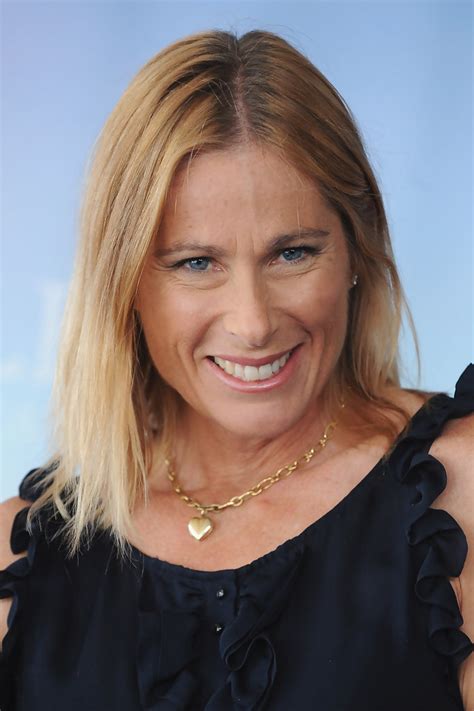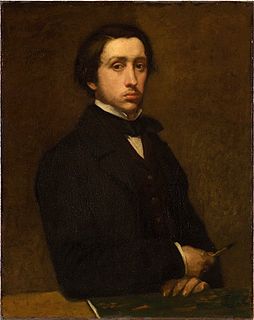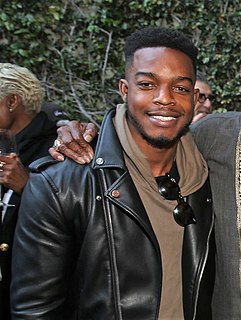A Quote by Jay-Z
On the night he died - he was twenty-seven - Basquiat had been planning to see a Run-DMC show. When people asked him what his art was about, he'd hit them with the same three words: "Royalty, heroism, and the streets.
Related Quotes
No mathematician should ever allow him to forget that mathematics, more than any other art or science, is a young man's game. ... Galois died at twenty-one, Abel at twenty-seven, Ramanujan at thirty-three, Riemann at forty. There have been men who have done great work later; ... [but] I do not know of a single instance of a major mathematical advance initiated by a man past fifty. ... A mathematician may still be competent enough at sixty, but it is useless to expect him to have original ideas.
I'd been asked by Takashi Murakami to collaborate on something, which was an honor for me. I was really pleased. And then he had me as a guest speaker on his radio show, and we were talking about art. I don't think he knew I was interested in the topic - he was really surprised to find out that I own some original Andy Warhol and Gerhard Richter and Jean-Michel Basquiat works. So, in some ways, I think he simply wanted to see what I have.
It would perhaps not be amiss to point out that he had always tried to be a good dog. He had tried to do all the things his MAN and his WOMAN, and most of all his BOY, had asked or expected of him. He would have died for them, if that had been required. He had never wanted to kill anybody. He had been struck by something, possibly destiny, or fate, or only a degenerative nerve disease called rabies. Free will was not a factor.
The Rolling Stones were an inkling towards an appreciation of the unity of music, dance and words. Any of the black R&B people who had a stage show that involved dancing, music and words did the same thing, except that I thought Jagger's words were good, his music was good and his dancing was good. I spoke to him about Blake and tried to get him to sing [William] Blake's The Grey Monk, to use his words as lyrics. He didn't do it. In the end, I did it myself.
Now, everybody knows the basic erogenous zones. You got one, two, three, four, five, six, and seven. ... OK, now most guys will hit one, two, three and then go to seven and set up camp. ... You want to hit 'em all and you wanna mix 'em up. You gotta keep 'em on their toes. ... You could start out with a little one. A two. A one, two, three. A three. A five. A four. A three, two. Two. A two, four, six. Two, four, six. Four. Two. Two. Four, seven! Five, seven! Six, seven! Seven! Seven! Seven! Seven! Seven! Seven! Seven! Seven! Seven! [holds up seven fingers]
Art and education may refine the taste, but they cannot purify the heart and regenerate the individual. His (Christ’s) words were simple yet profound. And they shook people, provoking either happy acceptance or violent refection. People were never the same after listening to him….The people who followed Him were unique in their generation. They turned the world upside down because their hearts had been turned right side up. The world has never been the same.
This man, who for twenty-five years has been reading and writing about art, and in all that time has never understood anything about art, has for twenty-five years been hashing over other people's ideas about realism, naturalism and all that nonsense; for twenty-five years he has been reading and writing about what intelligent people already know and about what stupid people don't want to know--which means that for twenty-five years he's been taking nothing and making nothing out of it. And with it all, what conceit! What pretension!
Simon remembered a rhyme his mother used to recite to him, about magpies. You were supposed to count them and say: one for sorrow, two for mirth, three for a wedding, four for a birth, five for silver, six for gold, seven for a secret that's never been told. "Right," simon said. He had already lost count of the numbers of birds there were. Seven, he guessed. A secret that's never been told. Whatever that was.
My art, what do you want to say about it? Do you think you can explain the merits of a picture to those who do not see them? . . . I can find the best and clearest words to explain my meaning, and I have spoken to the most intelligent people about art, and they have not understood; but among people who understand, words are not necessary, you say humph, he, ha and everything has been said.
Zest. Gusto. How rarely one hears these words used. How rarely do we see people living, or for that matter, creating, by them. Yet if I were asked to name the most important items in a writer's make-up, the things that shape his material and rush him along the road he wants to go. I would only warn him to look to his zest, see to his gusto.
In his wretched life of less than twenty-seven years Abel accomplished so much of the highest order that one of the leading mathematicians of the Nineteenth Century could say without exaggeration, "Abel has left mathematicians enough to keep them busy for five hundred years." Asked how he had done all this in the six or seven years of his working life, Abel replied, "By studying the masters, not the pupils."




































